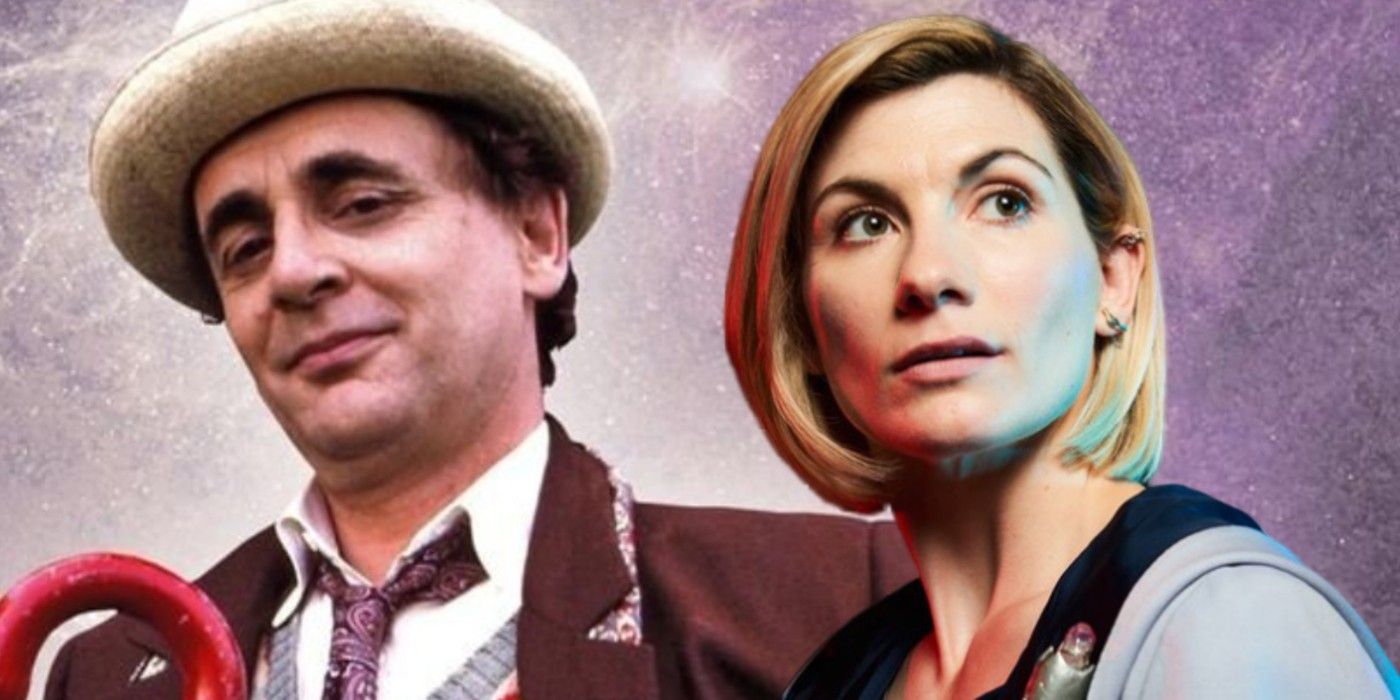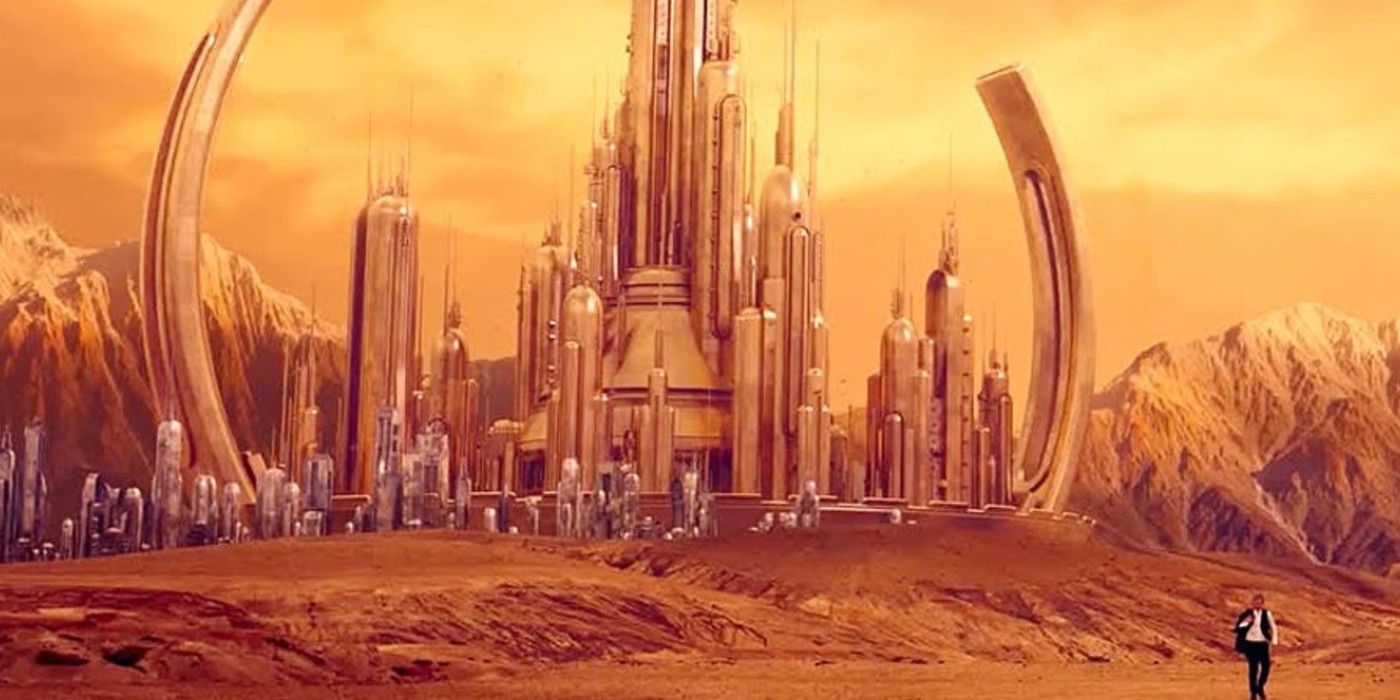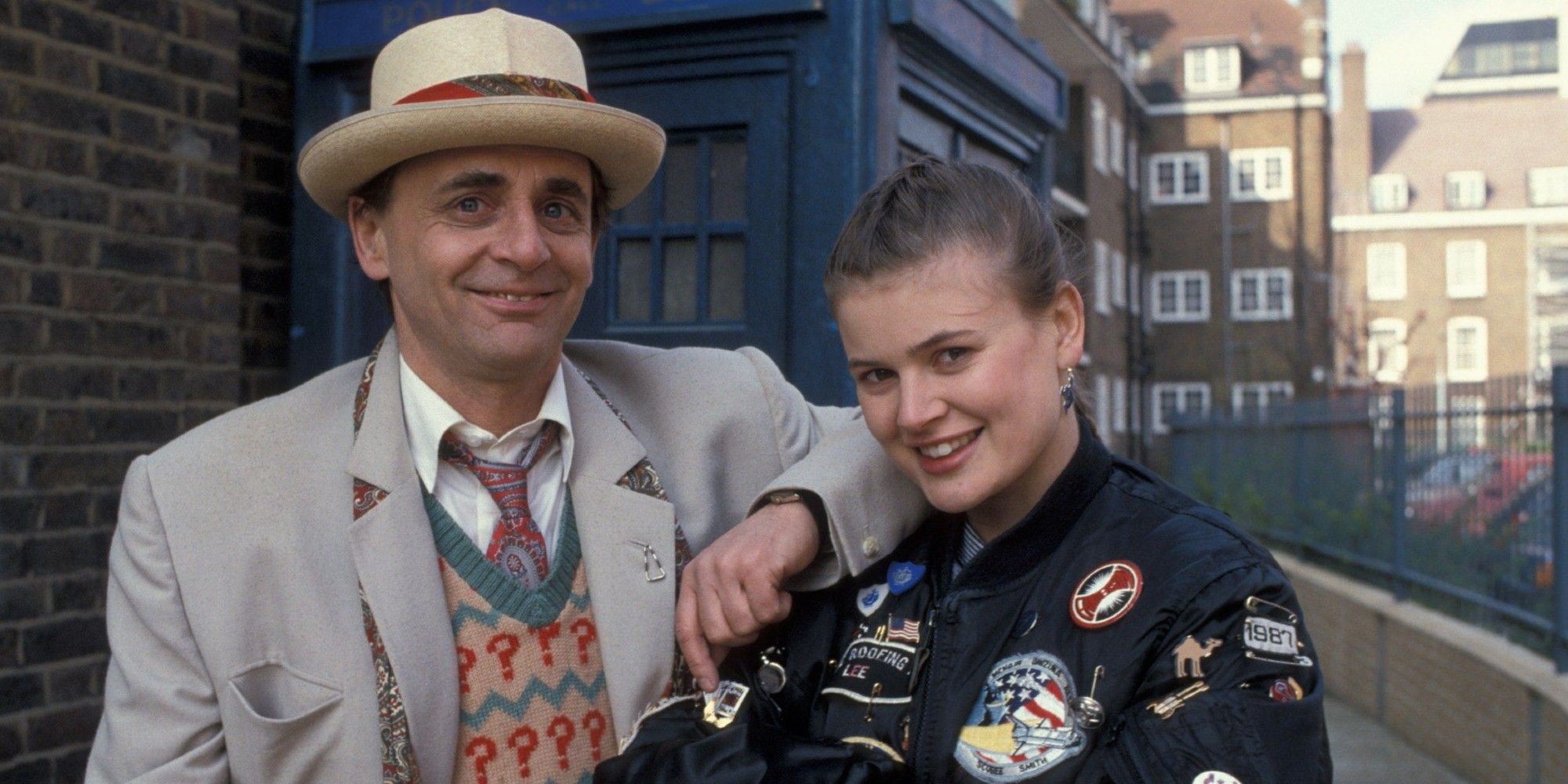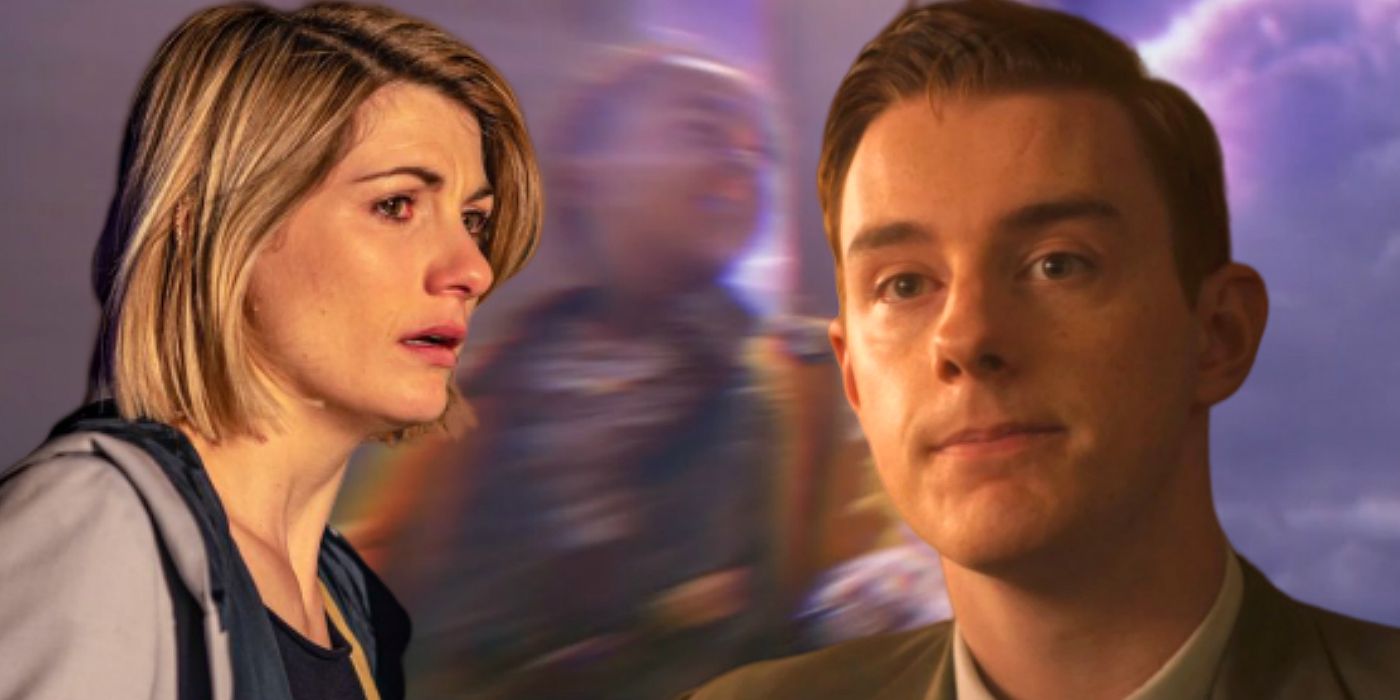
Warning: The following contains SPOILERS for Doctor Who "The Timeless Children."
The finale of Doctor Who season 12 completed a storyline that was meant to be introduced during the era of 7th Doctor, at the tail-end of the Classic Series. The so-called Cartmel Masterplan was intended to establish The Doctor as a legendary figure with ties to the foundation of the Time Lords, and "The Timeless Children" has accomplished that.
Written by current Doctor Who showrunner Chris Chibnall, "The Timeless Children" was the culmination of a season full of mysteries. The season started with the introduction of a new Master (Sacha Dhawan), who destroyed the Time Lords after learning of a great secret their elders had hidden away for eons. The ongoing story of Doctor Who season 12 also suggested that Jodie Whittaker's Doctor might not be fully aware of her entire past and may have had her memories altered at some point.
For all the complaints many fans made that Chibnall was trying to change too much of the show's mythology, most of what he has done falls perfectly in line with a rejected idea formulated by script editor Andrew Cartmel that would have changed Doctor Who in a similarly radical fashion. While very little of the Cartmel Masterplan made it onto the air, portions of it would later find their way into the Doctor Who novels of the 1990s. While Chibnall's designs are decidedly different, they still accomplish the same ultimate ends.

Doctor Who found itself in dire straits throughout the 1980s. With the BBC under the control of an executive who described the show as "garbage" and a showrunner whose aesthetic ideals clashed with the dominant undercurrent of the popular science-fiction of the time (i.e. make it look like Star Wars), it is no wonder that the show underwent significant retooling before going on hiatus between its 22nd and 23rd seasons. While opinion is still divided among Whovians as to who was most responsible for Doctor Who's failing fortunes throughout the 1980s, it can't be denied that the show's ratings dropped steadily as fan interest waned.
Enter Andrew Cartmel, an inexperienced author and editor, who was hired on as Doctor Who's script editor for season 24 at the same time actor Sylvester McCoy was brought into the series as the 7th Doctor. Cartmel had an unusual take on why Doctor Who was declining in popularity. To Cartmel, the issue was not that there was no place for The Doctor in the modern world or that the show looked too low-budget. The problem was that the sense of mystery which surrounded The Doctor and his race, the Time Lords, had been slowly eroded by stories like Arc of Infinity and The Trial of a Time Lord, which turned the once unknowable guardians of time and space into a group of squabbling bureaucrats in robes and funny hats.
With writers Ben Aaronovitch and Marc Platt, Cartmel began developing the idea that The Doctor was far more than a renegade Time Lord. It was Cartmel's intention that this would be slowly suggested through bits and pieces of dialogue slipped in to various episodes. The ultimate goal of this teasing would be the revelation that The Doctor was one of the Time Lords' founders; a mysterious being known only as The Other.

Cartmel's design was later dubbed the Cartmel Masterplan by fans, though writer Marc Platt denied that there was ever a formal plan as such. Still, the trio did manage to work several suggestions of the basic idea of The Doctor hiding some great secret of his past and having abilities far beyond those of a common Time Lord into a number of stories during seasons 24, 25 and 26. Unfortunately, most of these suggestions were written out of the show by showrunner John Nathan Turner, who was notorious for rewriting scripts that conflicted with his ideas of what Doctor Who should be. Despite this, Cartmel, Platt and Aaronovitch were able to pass most of their ideas on to Peter Darvill-Evans, editor on the New Doctor Who Adventures book line, which took on a new life after the show went on a second hiatus in 1989.
The central conceit of the Cartmel's Masterplan was the development of a Triumvirate of Time Lords who were responsible for the advancement of their race. Previous stories had already established two key Time Lord figures; Omega, the stellar engineer whose experiments developed the power source that gave the Time Lords the energy necessary to travel through time, and Rassilon, the founder of the Time Lord society and their first Lord High President. Cartmel proposed a third figure, The Other, who would simultaneously be the most powerful and most mysterious of the Triumvirate as well as the designer of the first TARDIS. Various legends would describe The Other as having been born on a world apart from Gallifrey (possibly a different dimension) and having come forward in time to give them his advanced knowledge.
The endgame of the Cartmel Masterplan would be the revelation that The Doctor was The Other; either a reincarnation of the legendary Time Lord founder or a future regeneration who had gone into hiding for undetermined reasons. Only a few fragments of the Cartmel Masterplan made it into the shooting scripts and most of these were vague hints voiced by enemies who knew something of The Doctor's secret past. One of these was Lady Peinforte, the chief villain of the episode "Silver Nemesis," who claimed to have knowledge of The Doctor's actions during The Dark Times of Ancient Gallifrey. Another was Morgaine, a sorcerer-queen from another dimension, who claimed that she had battled The Doctor before when he had used the name Merlin.
The most overt hint at The Doctor's secret past as The Other came in the season 25 premiere, "Remembrance of The Daleks." It was here that the 7th Doctor and his companion Ace returned to Earth to recover a Time Lord artifact called the Hand of Omega, which The Doctor had left behind in one of his earlier incarnations. The Doctor described the artifact and its power to Ace, muttering to himself "And didn't we have trouble with the prototype." When Ace asked what he meant by "we," The Doctor quickly corrected himself and said he meant"they."

While the name of The Other is not mentioned in "The Timeless Children," the finale of Doctor Who's season 12 accomplishes the same ends as Cartmel's Masterplan. Ironically, while Doctor Who is not facing the cancellation fears it did in the 1980s, many critics and fans have complained about the series being in a similar creative rut. One frequently cited concern is that former showrunner Steven Moffat went too far in trying to explain various aspects of The Doctor's past and the science of Time Lord regeneration and that, as before, much of the mystery surrounding the character had been destroyed.
For better or worse, current showrunner Chris Chibnall worked to restore that mystery throughout deason 12; first by arranging the destruction of Gallifrey and the Time Lords at the hands of a new incarnation of The Doctor's archenemy, The Master, then by introducing a new wrinkle - that The Doctor was an unreliable narrator who had no clue as to the truth of her own past. This conceit was further compounded by the introduction of Ruth; a never-before seen incarnation of The Doctor, who doesn't fit into the previously established succession of The Doctor's regenerations.
"The Timeless Children" offered an explanation for all of this, by establishing The Doctor as a grown-up version of a legendary figure known as the Timeless Child. The Master revealed the truth behind the lie upon which Time Lord society was built to The Doctor, explaining that an early Time Lord explorer and scientist named Tecteun had discovered a child standing before a portal to another reality. Adopting the child as her own, Tecteun would later discover that the alien child could not die and would regenerate into a new body any time she suffered a fatal injury. Tecteun studied the so-called Timeless Child, eventually discovering the means by which the alien child was able to heal itself and introducing that element into the Time Lords' biology. The Doctor also experienced flashbacks to memories regarding a Time Lord organization called The Division, which apparently recruited the Timeless Child as an agent to help them with subtly altering the timeline by averting great disasters.
While this seemingly explains why The Doctor was afforded so much latitude by the Time Lord establishment in her rebellious behavior over the years as she violated the laws regarding interfering in the affairs of other planets, the answers Chibnball offers in "The Timeless Children" only yield more questions. It is unclear now just how extensive The Doctor's past is and what role she might have played in Time Lord society, beyond being the source of their immortality. However, the greatest revelation to come from this latest Doctor Who story is that The Doctor is now, as Andrew Cartmel intended some three decades earlier, a figure of mystery whose past is tied to the origins of the Time Lords.
from ScreenRant - Feed https://ift.tt/2QaLFBU
via IFTTT







0 comments:
Post a Comment